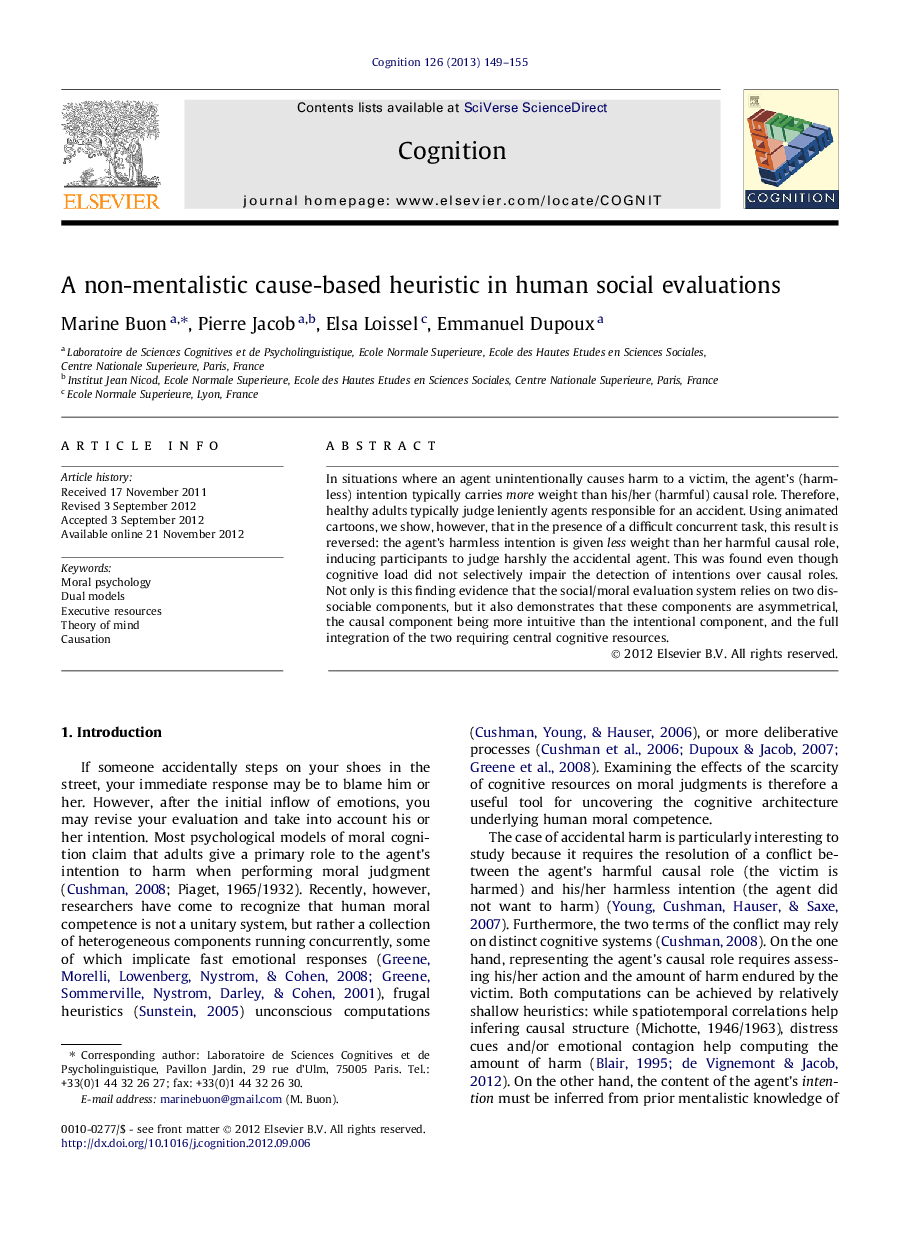| کد مقاله | کد نشریه | سال انتشار | مقاله انگلیسی | نسخه تمام متن |
|---|---|---|---|---|
| 926449 | 921868 | 2013 | 7 صفحه PDF | دانلود رایگان |

In situations where an agent unintentionally causes harm to a victim, the agent’s (harmless) intention typically carries more weight than his/her (harmful) causal role. Therefore, healthy adults typically judge leniently agents responsible for an accident. Using animated cartoons, we show, however, that in the presence of a difficult concurrent task, this result is reversed: the agent’s harmless intention is given less weight than her harmful causal role, inducing participants to judge harshly the accidental agent. This was found even though cognitive load did not selectively impair the detection of intentions over causal roles. Not only is this finding evidence that the social/moral evaluation system relies on two dissociable components, but it also demonstrates that these components are asymmetrical, the causal component being more intuitive than the intentional component, and the full integration of the two requiring central cognitive resources.
► We studied how causal and intentional cues are integrated into moral judgment.
► Adults under normal or cognitive load conditions judged different situations of harm.
► In normal conditions, judgments are primarily based on agents’ intention.
► Under cognitive load, judgments are primarily based on agents’ causal roles.
► Morality is first guided by a cause-based heuristic; integrating intentions is costly.
Journal: Cognition - Volume 126, Issue 2, February 2013, Pages 149–155